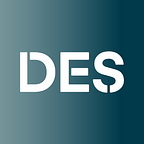Upcoming DEI training focuses on disrupting structural racism
You can’t show up authentically at work if you don’t fully belong.
— Adrian Thompson, PhD
“A Path Toward Equity: Disrupting Structural Racism through Awareness and Belonging” is Washington state’s foundational learning experience for growing the workforce’s diversity, equity, and inclusion (DEI) competencies. The training is part of statewide pro-equity, anti-racist culture change efforts so that government systems better serve all Washingtonians with equity and justice.
The training starts with a two-hour documentary, “Who We Are: A Chronicle of Racism in America.” The instructor-led segments, or modules, cover four topics:
- Racism as a Foundation
- Racism as a Structure
- Feeling Like an Outsider: The Cost of Being Othered
- Belonging: Moving from Them to Us
We visited with Adrian Thompson, PhD, DES Chief Equity Officer and curriculum development lead for “A Path Toward Equity.” Dr. Thompson shared what’s in the training and how the curriculum supports disruption of structural racism.
LEARNING CONNECTIONS: Can you give us an overview of the instructor-led modules? What can learners expect when they take this training?
ADRIAN THOMPSON: “A Path Toward Equity” is designed to introduce learners to the concepts of racism, othering, and belonging. We want learners to connect with those concepts. We talk about the difference between racism, discrimination, and prejudice. We also talk about racism at the cultural, institutional, and individual levels. We need to see how we’re influenced by the systems in which we live and work. It’s important for each learner — each of us — to see themselves in the system.
The training focuses on structural racism, but also intends for those concepts to serve to understand ways of “othering.” Can you elaborate on how that works?
Structural inequality creates a hierarchy of individuals. It’s a way of organizing people to distribute power. It’s a way of saying, “Because you’re not up here near the top, you don’t deserve the same treatment.” It creates the ability to marginalize those people. But hierarchy doesn’t actually exist. It’s a made-up structure that can be used to discriminate.
So, when we talk about “othering,” we’re talking about how differences are defined by group identification. In other words, individuals are othered or treated differently because they do not belong the norm group. Once a group has clearly defined norms, the norms are used to justify differential treatment of the “othered.”
Once you understand there’s a system designed to say people are inherently different, that understanding can be applied to other ways of discriminating. We need to understand the power structure of institutions because the institutions reinforce and train us. By pointing out the structure in the context of racism, we give the foundation for understanding other forms of marginalization.
The last module in the training focuses on belonging. Could you talk about why the team chose to conclude with belonging?
There’s a lot of conversation about this term. john a. powell, Director of the Othering & Belonging Institute, talks about belonging as expanding the sphere of inclusion around people. We included a module on belonging in this training because you can’t have a training on racism without it. Belonging is the transformational step.
Belonging is how we disrupt structural racism. It’s something all people need, not just marginalized groups. It’s a common goal that we all share. That’s why in our module on belonging, we cover how to increase belonging and how to usher it in effectively. It’s about knowing who is not in the sphere of inclusion, why they’re not, making it so they can enter the sphere, and understanding how to keep them there. You can’t show up authentically at work if you don’t fully belong.
Visit “A Path Toward Equity” webpage for more information. Subscribe to Learning Connections to get articles by email.
Adrian Thompson, PhD, is the first Chief Equity Officer for the Department of Enterprise Services (DES). Adrian previously served at the Department of Corrections, most recently as the Equity and Inclusion Administrator. He holds doctorate and master’s degrees in clinical psychology from Howard University and a bachelor’s degree in psychology from West Virginia University. He has extensive professional and clinical experience with a focus in diversity, equity and inclusion (DEI).
